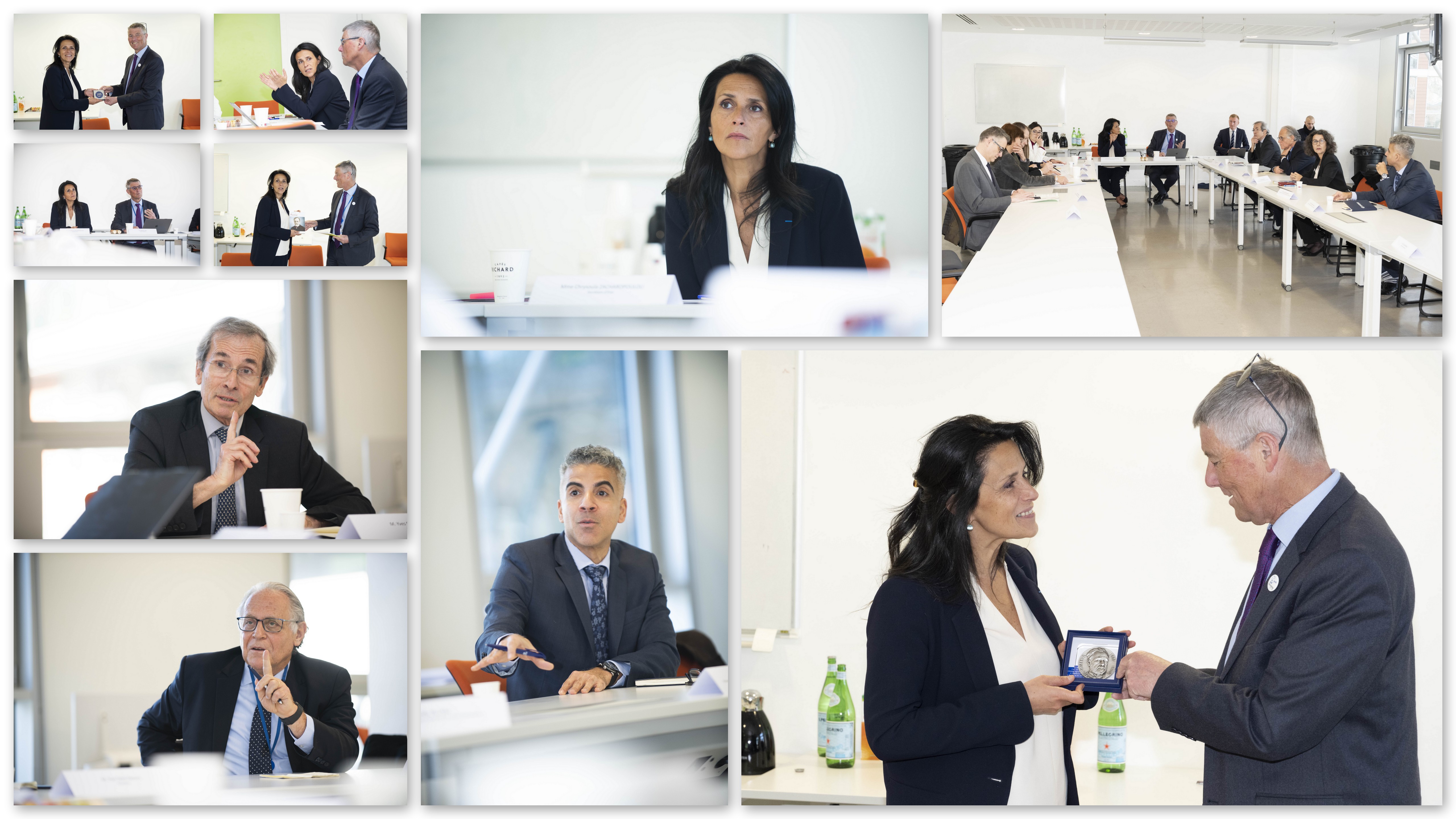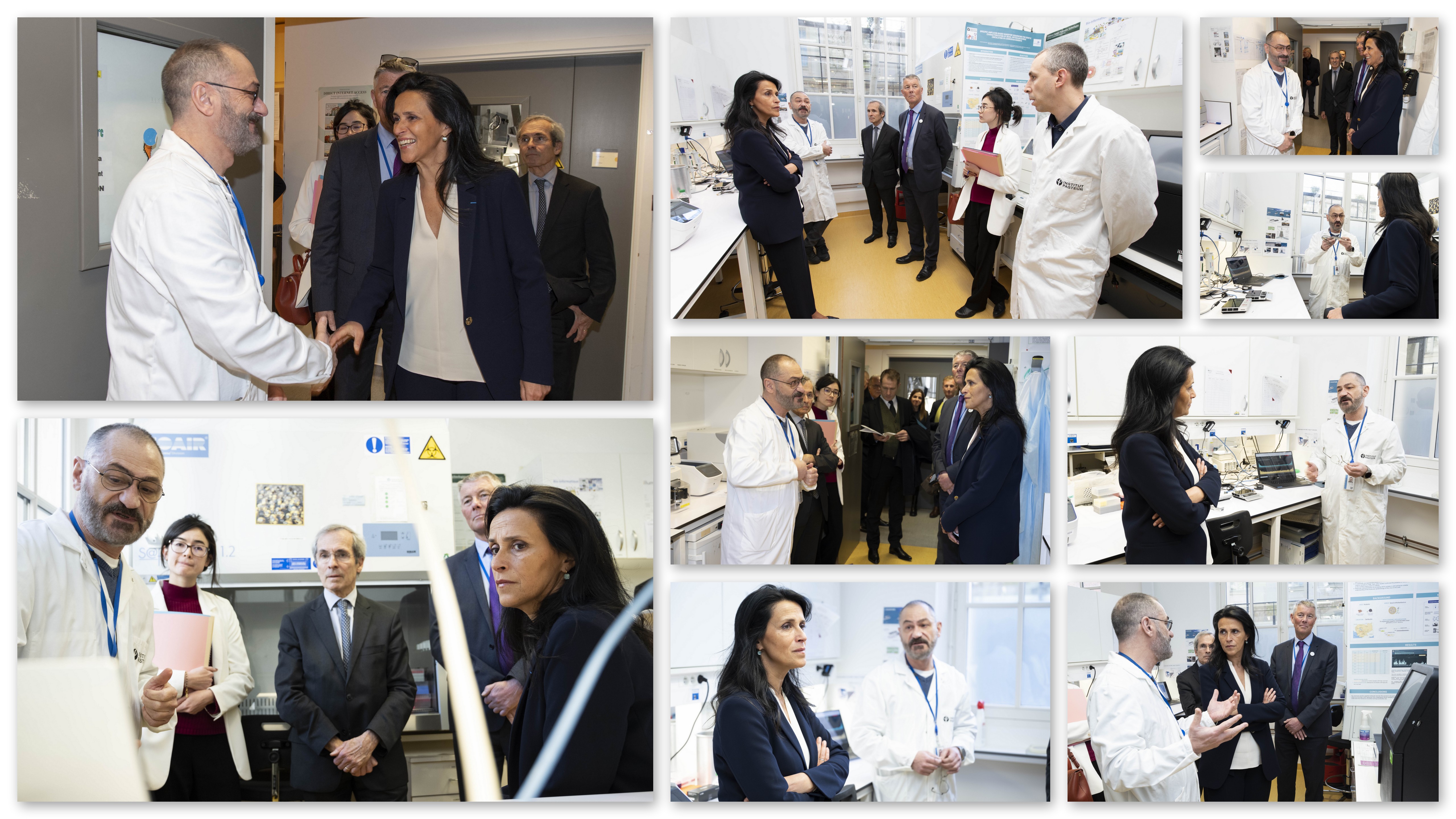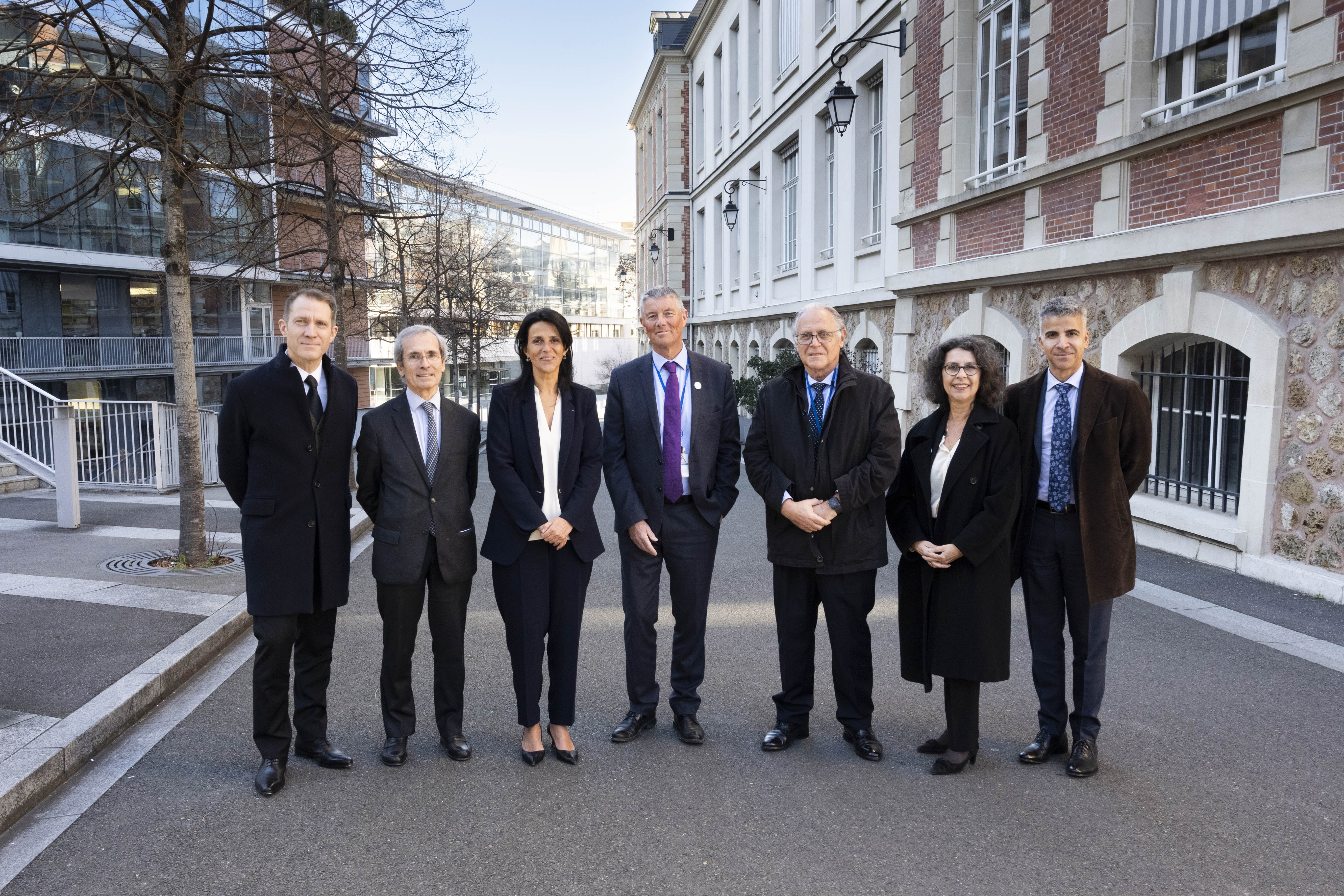
 Visit
Visit
Visit to the Institut Pasteur by the French Minister of State attached to the Minister for Europe and Foreign Affairs
On February 20, Chrysoula Zacharopoulou, French Minister of State attached to the Minister for Europe and Foreign Affairs, was welcomed to the Institut Pasteur by Stewart Cole, President of the Institut Pasteur, and Yves Saint-Geours, Chairman of the Board of Governors.
Part of her visit involved several presentations given in turn by Stewart Cole, Isabelle Buckle, Executive Vice-President for Technology Transfer and Industrial Partnership, and Fernando Arenzana-Seisdedos, Interim Vice-President International Affairs. These presentations gave Chrysoula Zacharopoulou a clearer idea of the Institut Pasteur's missions and its efforts to develop scientific collaboration in various countries (United States, Brazil, India, Japan, etc.).
The Institut Pasteur's role as coordinator of the 19 consortium partners involved in the four-year DURABLE project, funded by the European Health Emergency Preparedness and Response Authority (HERA), was a particular focus of discussions.
The "One Health" challenges facing the global community, preparedness for future pandemics and the need for European cooperation in health and research were also discussed. The Minister of State particularly highlighted the crucial role played by the Institut Pasteur and the Pasteur Network at international level, especially in health partnerships between France and Africa for vaccine production on the African continent.
The delegation also visited the Institut Pasteur's Laboratory for Urgent Response to Biological Threats (CIBU) alongside its Director, Jean-Claude Manuguerra, at a time when all thoughts continue to turn to Turkey and Syria following the devastating earthquake on February 6. After the discussions, it was announced that the Institut Pasteur may soon be participating in a "mobile laboratory" mission in Turkey involving around a dozen volunteers from the CIBU and additional volunteers (scientists, engineers and technicians) from several research units.
Their tasks would be infectious disease surveillance and rapid diagnosis for local populations, especially in view of the risk of typhoid fever, cholera and tuberculosis.
The mission could last for at least three months, with two-week rotations of groups of three people. It would be carried out under the mandate of the World Health Organization (WHO) and in collaboration with a European laboratory (the Belgian B-LiFE mobile laboratory).
Photos: François Gardy / Institut Pasteur



